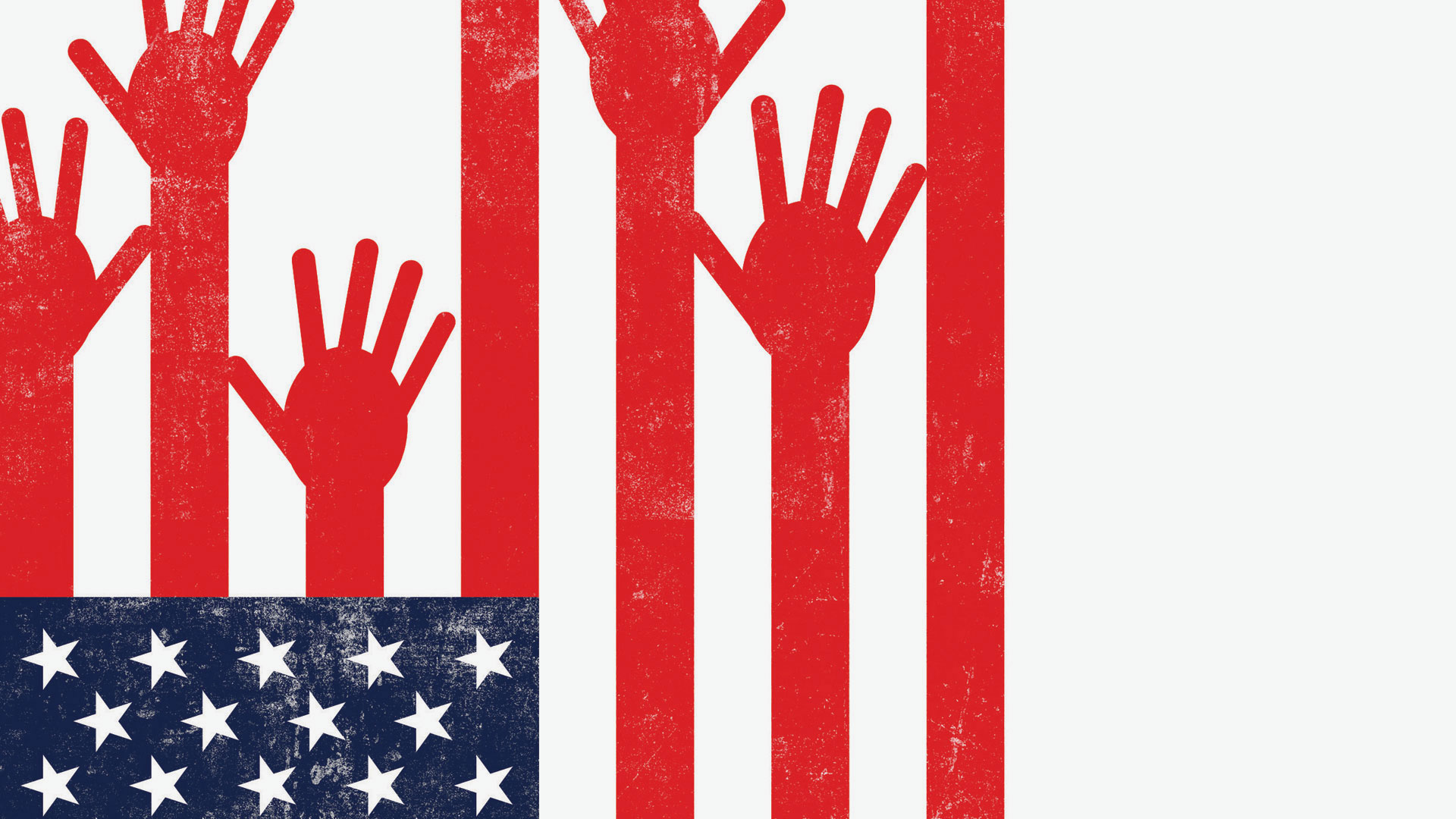Politics As Religion
Conventional wisdom advised that religion and politics don’t mix; perhaps that’s why the rules of etiquette used to require avoiding either in casual social conversation. Yet history shows that the two have long been intertwined. From ancient empires to modern totalitarian and democratic governments, religious elements have been present in all the world’s political systems.
Not so long ago, however, religion was thought to be dead and its role in public life over. As societies became more secular and modernized, religion was bound to retreat, but its role in political life has come to the fore again in recent years. Of course, there has been much more focus on religion in politics with the rise of fundamentalisms of various kinds and with the collapse of the Soviet system.
Italian author and historian Emilio Gentile has focused on what he calls the “sacralization” of politics: making aspects of a secular political system into something bordering on the holy or sacred. This predates by many years the recent emergence of religion as a force in international affairs. When asked to clarify the term in a 2009 Vision interview, Gentile replied: “I mean that some secular entity in politics, like ‘the Fatherland,’ ‘the Race,’ ‘the Revolution,’ ‘the Proletariat,’ becomes absolute and requires obedience from people who believe that such an entity is the giver of the meaning of life, for which you should be willing to sacrifice your life. In any nation you sacrifice your life in war to save the country. In this way, the country becomes a secular god.”
Gentile’s studies range across all political systems. When asked to detail some of the elements of political sacralization in today’s world, he began, perhaps surprisingly, with one of freedom’s symbols: “Take the [U.S.] dollar bill as a starting point. When you turn it over, you have the national motto, ‘In God We Trust.’ But there is no definition of God in this sentence. Is it the biblical God? It is the Muslim God? No, it is the god of America.
“The [Lincoln] memorial now represents a holy ghost of the savior of the union and the great liberator of slaves. And in a sense, Lincoln is still present as a Greek theologian of the American civil religion, as many U.S. scholars have defined him.”
“And then you have the symbol of the Great Seal, the pyramid, God’s eye above the sacred triangle, and two Latin sentences. . . . These are religious elements, but they are related not to the God of the Bible or the Christian or Muslim God; they are related to the American entity, to the American Nation, to the American Republic.”
Gentile continued: “You can also see such symbolism in U.S. monuments. It is very difficult to approach the Lincoln Memorial without having a sense of religiosity, of sacredness surrounding Lincoln in that temple. It’s a clear example of the sacralization of politics, because Lincoln was not a God-sent son, he was a political figure.”
This is not to suggest that we should not cooperate with government, simply that we should recognize its use of religious elements.
Jesus was approached on a related matter by His religio-political opponents. In an attempt to trap Him, they asked, “Is it lawful to pay taxes to Caesar, or not?” He asked whose image was on the coinage. Of course, it was Caesar’s. His reply was, “Render therefore to Caesar the things that are Caesar’s, and to God the things that are God’s” (Matthew 22:17, 21). He thus avoided their trick question and drew a distinction between the secular and the religious, while indicating that both require compliance. What remained unspoken was what happens when there is a conflict between man’s laws and God’s laws. For the believer, the apostle Peter supplies the answer: “We ought to obey God rather than men” (Acts 5:29). Countless people over the centuries have had to make that decision and take the consequences.

